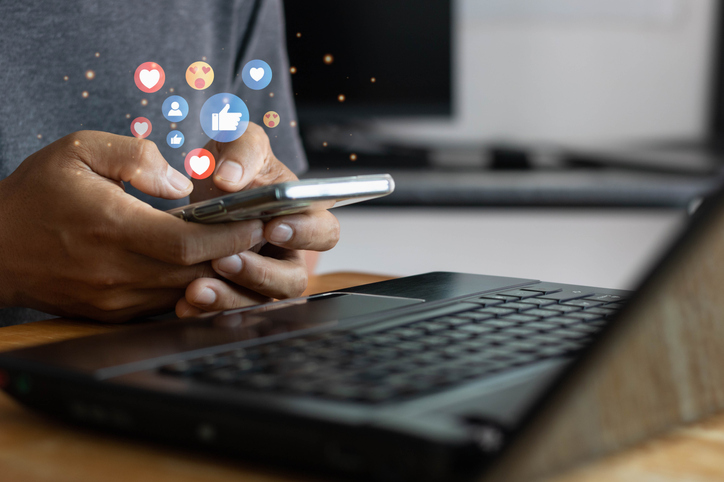
Harnessing the positivity of social media and private forums may help young Aboriginal and Torres Strait men explore their mental health and develop skills and strategies to help them cope during challenging times.
A new Flinders-led project will explore whether social media can help improve the mental wellbeing of young Aboriginal and Torres Strait Islander men by offering them a culturally safe space to discuss sensitive topics and help relieve feelings of isolation and loneliness.
Data from the Australian Bureau of Statistics reveals that the suicide rate among Aboriginal and Torres Strait Islander males is twice that of non-Indigenous people, and it is widely acknowledged that such health disparities are fuelled by systemic inequities, including educational disadvantage and cultural dislocation.

“Few digital health promotion programs are tailored towards the unique health, social and cultural needs of young Aboriginal and Torres Strait Islander males – despite their disproportionate experience of mental health concerns, suicide ideation and suicide,” says lead researcher Professor James Smith, Deputy Dean Rural and Remote Health NT, College of Medicine and Public Health.
A new program, Young Black Men in the Northern Territory, (YBMenNT) has received valuable funding support from Movember to design and trial an online social and emotional wellbeing health promotion program in collaboration with young Indigenous men.

“It‘s acknowledged that mental health is a tough subject for a lot of men to talk about,” says Mr Jason Bonson, Aboriginal and Torres Strait Islander Male Health and Wellbeing.
“We want to provide an online program for young Aboriginal and Torres Strait Islander men that can be delivered through a private social media group such as Instagram that aims to encourage positive and open discussions about mental health, cultural identity and progressive concepts of manhood and masculinities,” says Mr Bonson.
“By using a private forum on social media, we can offer a space where young Aboriginal and Torres Strait Islander men can talk in comfort and confidence about issues that they might not feel comfortable discussing anywhere, or to anyone, else,” he says.
YBMenNT has been adapted for young men in the Northern Territory from the YBMen project, which was originally developed in the US to transform gender norms, enrich mental health and engage in social support for young Black men.
“By collaborating with community-led organisations, we have created a program that is socially relevant and relatable in order to engage young Aboriginal and Torres Strait Islander men in discussions about mental health literacy, help-seeking, progressive concepts of manhood and masculinities and their emerging cultural identities,” he says.
“We believe in investing in programs that tackle unique issues through innovative approaches, particularly those that demonstrate that they work and can be scaled for broader impact. Movember continues to focus on the importance of building and strengthening relationships and feelings of belongingness to address the adverse effects of social isolation and loneliness on mental health,” says Ivy Lim-Carter, Director, Social Innovation, Mental Health & Suicide Prevention Program, Movember.
“YBMenNT’s aim to foster social connection and interaction that can greatly improve mental health and well-being outcomes for Aboriginal and Torres Strait Islander men and their communities fits directly with the goals of the Social Connections program,” Ms Lim-Carter adds.
The adapted program will facilitate online discussions that are culturally sensitive, age-appropriate and gender-specific using YouTube videos, song lyrics, and current news headlines. Group members can use the private forum to respond with their ideas, thoughts, perceptions, and challenges related to mental health, manhood, and social support.
The program will be delivered to young Aboriginal and Torres Strait Islander men (15-25 years) in the Greater Darwin area of the Northern Territory through weekly one-hour sessions across eight weeks starting in February 2024.
“The outcomes of our project will help us to identify the best approaches to sustainably maintain and potentially scale up the YBMenNT program over the longer-term,” says Professor Smith.
“Our approach has significant potential to enhance the health and educational outcomes of young Indigenous males both nationally and globally. It will also provide world-first comparative data with other diverse groups of young men of colour,” he adds.
Acknowledgements:
This project includes collaboration across the Northern Territory and South Australia and with key researchers affiliated with the Flinders Institute for Mental Health and Wellbeing. This project also involves partnerships with the University of Tasmania, University of Sunshine Coast, and the University of Queensland.

